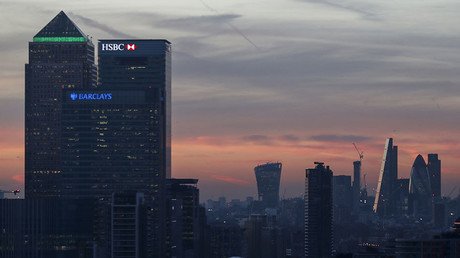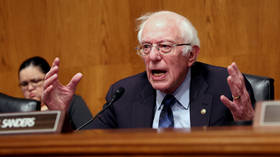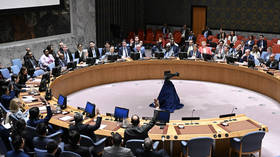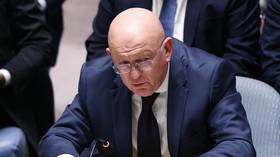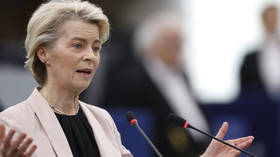Economist admits BoE’s Brexit financial collapse warnings were ‘a misjudgement’
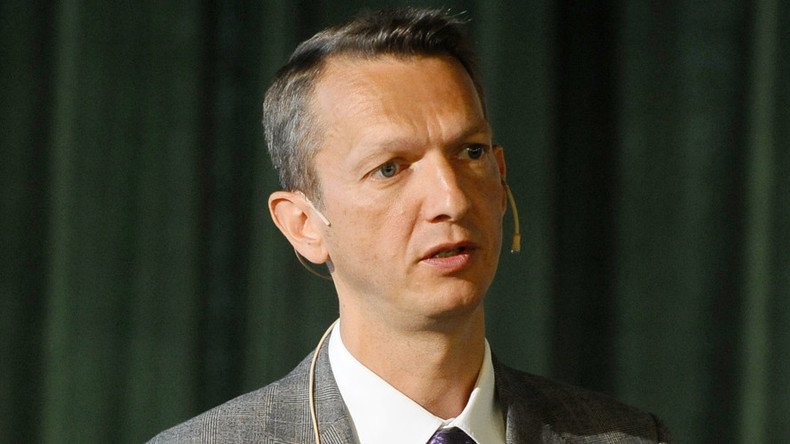
Economists failed to predict the 2008 financial crash and completely misjudged Brexit’s impact, the executive director of monetary analysis at the Bank of England (BoE) has admitted.
Andy Haldane, who was once heralded as one of the world’s 100 most influential people, described economists’ failure to accurately forecast the global financial crash “a fair cop.”
The BoE originally foresaw the British economy slumping dramatically after Brexit, which turned out not to be the case. Heldane also blamed the inability of traditional economic models to cope with the “irrational behavior” of modern investment.
“It’s not the first time it has happened,” Haldane said during a discussion at the Institute for Government.
“It happened back in the 1930s and the Great Depression. But out of that something good spread. It brought us [John Maynard] Keynes and the birth of modern macroeconomics.
“Out of this crisis, there could be a rebirth of economics. I’m not someone who would say that all that’s been done in the past is terrible. It’s just that the models we had were rather narrow and fragile. The problem came when the world was tipped upside down and those models were ill-equipped to making sense of behaviours that were deeply irrational.”
Andy Haldane, Chief Economist admits economic forecasting at the Bank of England is in crisis! Yep, we have mentioned this many times #JKA
— John Ashcroft (@jkaonline) January 6, 2017
The BoE has come under attack from politicians and commentators for its warnings on the effects of Brexit. Its governor, Mark Carney, was lambasted by Tory heavyweights such as Michael Gove, Boris Johnson, and former Foreign Secretary William Hague for predicting a slowdown in Britain’s economy after a Leave vote, which failed to materialize.
UK Prime Minister Theresa May, too, criticized the BoE for cutting interest rates and boosting stimulus packages with a further £60 billion ($74 billion) – amounting to a total of £435 billion.
READ MORE: UK ‘sailing blindly’ into financial meltdown bigger than 2008, think tank warns
Although former UK Government Economic Service head Vicky Pryce does not agree that the economist profession is in crisis, she did say that forecasters often “really have no idea” how governments will react and impact the markets.
Speaking on BBC Radio 4 Today program on Friday, she said: “The Leave vote, there was definitely a shock. The Bank of England and everyone else expected there was going to be a shock if there was a vote to leave the [European Union], and of course we saw that immediately on the financial market, straight after it was realised that indeed the UK was voting to leave the EU. We saw the pound come down very very significantly, and of course share prices came down significantly.
“What the forecasts did not of course incorporate in them is what the policy response might be to such a shock. And the policy response was the Bank of England’s response really. The governor came online straight away and calmed the markets, cut interest rates very quickly, and then of course put huge amounts of liquidity in the system, which stabilised the situation very significantly. You can’t have that in any forecast that you do.
“It’s very difficult when you are a policy forecaster to have all sorts of policy reactions in your expectations. You don’t know how that policy act will play in the markets so you don’t know what it will do to competence, you have no idea whether it’s going to be in any way effective. What happened in the financial crisis back in 2008, I was working in the government then, we threw everything into the pot that we possibly could to see what would stick. Some things worked, some things didn’t. You really have no idea.”
What nonsense from #AndyHaldane. He might think ahead only 3 months but I bet there isn't a single #Remainer who doesn't worry *long-term*.
— Elizabeth Bangs (@ElizabethBangs) January 6, 2017
Britain’s economy responded surprisingly well after the Brexit referendum, with GDP rising at a rate of 0.6 percent between July and September.
Last week, Gove openly attacked economics experts, arguing they must be challenged.
READ MORE: Sterling soars after UK court gives Parliament power to block Brexit
“Sometimes we’re invited to take experts as though they were prophets, as though their words were carved in tablets of stone and that we had to simply meekly bow down before them and accept their verdict,” Gove said in a debate with former BBC economics editor Stephanie Flanders.
“I think the right response in a democracy, to assertions made by experts, is to say ‘show us the evidence, show us the facts’. And then, if experts or indeed anyone in the debate can make a strong case, draw on evidence and let us think again – then of course they deserve respect.”
